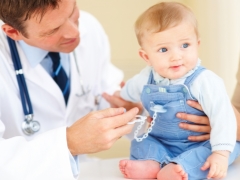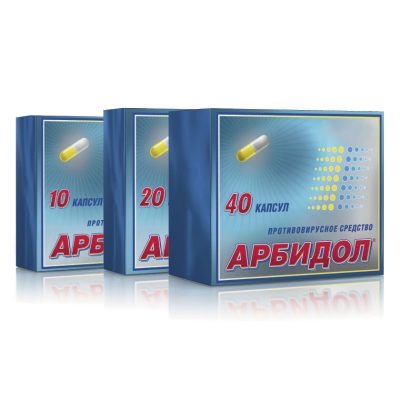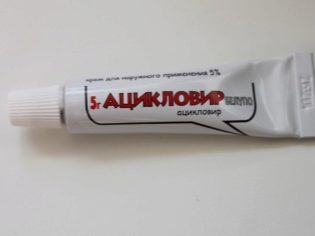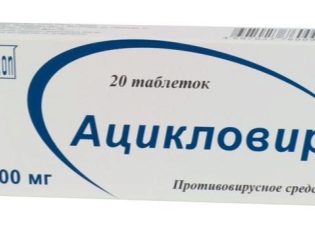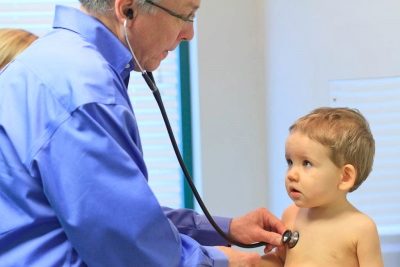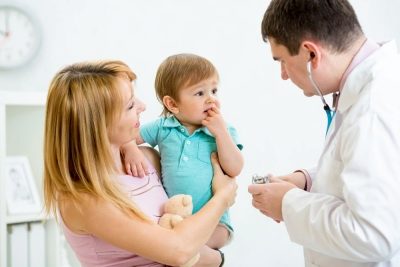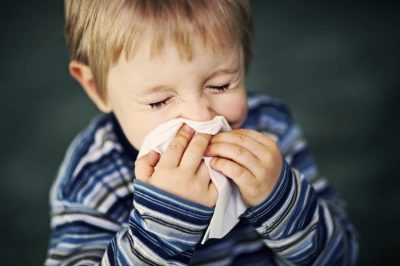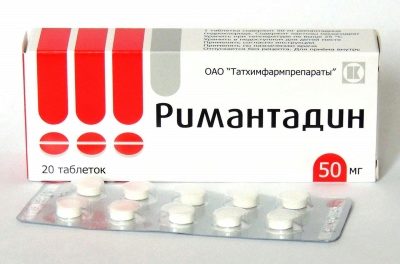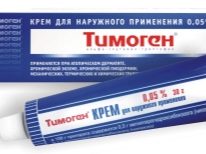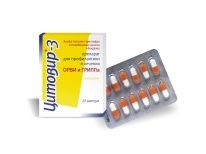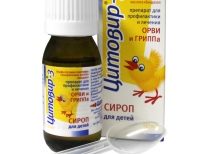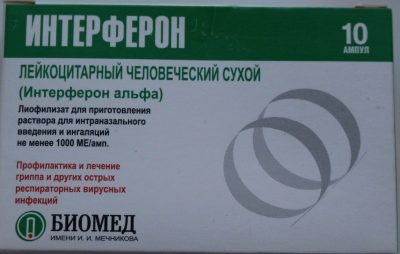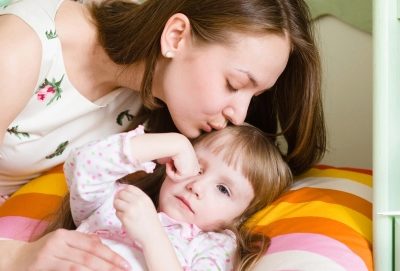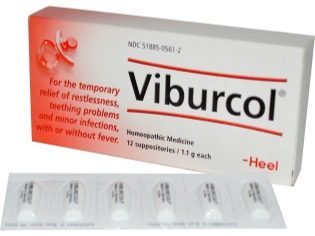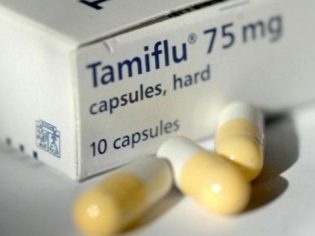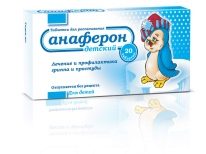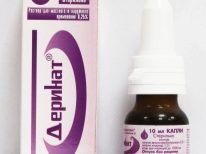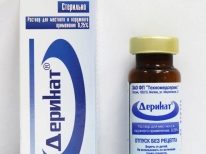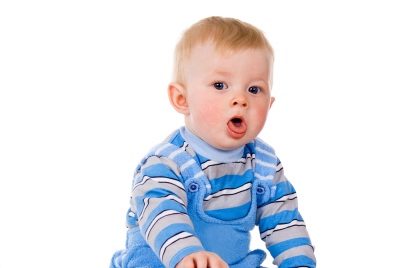Antiviral drugs for children from 1 year
Parents of babies of the first three years of life, as professional lifeguards, are always ready to get anxious, since in the first 36 months from the moment of their birth, the crumbs are most susceptible to various infections. Especially the "dangerous" age - the first year of life. As a rule, the flu and ORVI rarely attack babies up to a year old, but after the toddler celebrates his first birthday, the situation changes. And for the child himself, and for his parents.
Many of us, moms and dads "with experience" noticed that it was at the age of one year that our children often begin to deal with viruses. There is a reasonable explanation for this: with anniversaries, we often begin to appear in public places, walks with children become longer, some crumbs just in 1 year begin to visit their first children's groups - early development studios. The kids are actively reaching out for communication, expanding their world, which for a year was limited by the walls of the apartment and short walks in a carriage in the yard.
Immunity of the yearlings is still being formed, most often it does not know what the virus of influenza, herpes or chicken pox is and how to fight it. Do I need to give antiviral drugs to children from 1 year old? What means to choose?
Mechanism of action
Medicines, united by one common name "Antiviral drugs", are very different, both in form and method of exposure.
A separate group are anti-influenza drugs, such as "Arbidol". Their task is to specifically target influenza A and B viruses, as well as possible strains.
They are followed by antiherpetic drugs, such as "Acyclovir". Their area of responsibility covers herpes viruses, and there are quite a lot of them.
Immunomodulators and immunostimulants give a “push” to the child’s immunity, activating him for an early adequate response to the virus that has entered the body.
Interferons are preparations containing human interferon proteins obtained from donor blood cells under laboratory exposure to this or that virus. Such proteins are necessary to block the virus, not to allow it to multiply. Preparations with such a composition help the body to quickly deal with the "invaders."
Inductors for the synthesis of endogenous interferons - drugs, for the complex name of which lies a simple mechanism. Such drugs trigger in the body of a sick person the process of producing their own interferons, which, as we have already found out, are necessary for the final victory over viruses.
There are also chemicals that are fairly simple, straightforward and coarse affect the virus, as well as homeopathic remedies, the effectiveness of which, from the point of view of official medicine, has not yet been clinically proven.
Antiviral drugs are of plant, synthetic and semi-synthetic origin.
The main feature of this group of medicines is that they can be taken not only for the treatment of the disease, but also as a preventive measure.
Application features: Pros and Cons
The parents of a one-year-old child who has the flu have one desire - to alleviate the condition of the baby as soon as possible.Therefore, in 90% of cases, mothers and fathers from good intentions immediately run to the pharmacy, where the pharmacist recommends them to a children's antiviral drug, suitable for the crumb and relying on positive reviews. Moreover, we strive for medicine as soon as the baby’s body temperature exceeds the psychological mark of 37, 5.
All these actions are unreasonable and wrong. First, for signs of a viral cold, the child needs not restless and nervous parents, but balanced, knowing what to do, adults. The first thing you need to call the doctor at home. He will tell you whether there is a need for antiviral therapy and prescribe a specific drug. A doctor, not a pharmacist-pharmacist in a pharmacy!
In general, the use of antiviral drugs is a rather controversial issue. Many doctors, including a recognized authority among millions of mothers, a famous pediatrician Yevgeny Komarovsky, believe that the child is fully able to cope with the flu or ORVI independently, without medication.
Komarovsky, in particular, declares that the reception antiviral syrups and the pills need not so much a sick baby, as his parents need to calm him down - sort of like they did what they could, now the miracle pill will work, and the crumb will be easy and good.
You can see his campaign here:
Almost all antiviral drugs in one way or another put pressure on the child’s immune system, and this is clearly not beneficial, especially at the age of one in the period of the formation of immunity. Own protection provided by nature is unbalanced. As a result, the baby begins to get sick more often, and his illnesses themselves are more severe, the risk of complications increases.
Today's truth is that anti-virus products are more than available, sold without prescriptions, are widely advertised on TV, and therefore caring parents feed tons of pills to their children for any reason. As a result, we are raising a whole generation of children with weak immunity.
If you do not want to raise a weak, constantly ill child, who by the age of 10 will acquire a solid bouquet of diseases, including chronic ones, you do not have to fan antiviral products fanatically. Better help the crumbs of immunity to form on their own and get stronger.
Indications
I do not set goals to convince you that antivirals are harm and evil. Not always. Only with a systematic and uncontrolled reception. Of course, there are situations in which such preparations are necessary for the baby.
The doctor will recommend an antiviral agent in several cases:
- If your one-year-old baby fever does not subside for more than three days. Heat in the understanding of doctors and parents - two different things. Reception of antiviral drugs does not begin at 37.5, but only if the thermometer persistently shows a temperature above 38.5. Anything below is the normal reaction of a child’s immunity to a virus. Above - also a normal reaction, but a weak baby at the age of 1 year, with a strong long heat, may experience intoxication of the body, which leads to dehydration, convulsions. To prevent this, and prescribe anti-virus tools. Sometimes in tandem with antipyretic.
- If a child has a viral infection, it is difficult. When flu or ARVI rapidly develops various complications - in the throat, lungs, bronchi, etc. Such diseases will be considered a secondary infection, and the doctor will treat them symptomatically. If viral complications - antiviral drugs, if bacterial - antibiotics. In some cases, the doctor will prescribe both. Laboratory tests and the experience of a competent pediatrician help distinguish viral from microbial ailments. Independently moms and dads to diagnose is not worth it. An error can be costly.
Antiviral drugs are very likely to be prescribed to a one-year-old child with severe rotavirus, intestinal, herpetic infections, with adenovirus and enterovirus, with complex chickenpox, measles, shingles, viral eye disease and many other ailments.
Treatment and Prevention
Choosing antiviral agent for a child aged 1 year, you need to remember that different drugs in this group have important features.
Chemicals (e.g. "Rimantadine") Quickly destroy the virus, but also quite significantly" beat "throughout the child's body. For perennials such drugs are not always contraindicated, but the doctor should take a decision on their prescription, assessing the possible benefits and potential harm.
Immunomodulators and immunostimulants, such as "Tsitovir-3"," Timogen ", affect the immunity of the child, their frequent use can end up quite badly. Such drugs are contraindicated in children who have blood relatives with oncology or diabetes, as well as other diseases of the immune system.
Interferons containing a non-native baby protein have a lot of side effects. These drugs include "Interferon" and several others.
Doctors recognize the use of antiviral medications for the prevention of viral infections as a fairly effective measure. It is not always necessary to give antiviral drugs to the child to prevent the disease, but only in epidemi-seasons when there is someone infected in the child’s environment. Preventive doses are half the therapeutic! Giving a drug with an antiviral effect for the prevention of influenza and ARVI to a child from 1 year old is desirable no more than two courses (2-3 weeks) per year. Moreover, the weekly regimens - two days give medicines, and then take a break for five days.
"Children's" drugs
Children's antiviral agents differ from adults in dosage of the active substance and the dosage form of the preparation that is convenient for administration. Babies from 1 year old are ideally suited as drops for oral administration, nasal drops, syrups, suspensions, solution, solution for inhalation with a nebulizer, ointments, gels, rectal suppositories. Slight sublingual tablets are more rarely suited to years. And solid tablets of tablets and capsules are completely unnecessary at this age. Antiviral drugs injections also exist, but are used mainly only in hospitals, and not at home.
The list of the most popular antiviral drugs for children from 1 year:
Drug name | The mechanism of action of the drug, its type | Form release, suitable for a child from 1 year | Indications for use |
«Derinat» | Immunomodulator | External solution and nasal drops | SARS, acute respiratory infections, viral diseases of the eyes, oral cavity. |
Immunomodulator | Tablets under the tongue - absorbable. | SARS, influenza, mononucleosis, chickenpox, herpes, "intestinal flu", tick-borne encephalitis. | |
"Immunoflazid" | Direct antiviral effect | Syrup. | Influenza, SARS. |
"Nazoferon" | Interferons | Nose drops, spray | Influenza, SARS, ORZ. |
"Timogen" | Immunomodulator | Spray nasal and outer cream. | ARI, flu, viral skin lesions. |
"Tsitovir 3" | Immunomodulator | Syrup ready and dry matter for dilution of syrup. | Prevention and early stages of ARVI, flu. |
«Immunal» | Immunostimulant | Solution for oral administration and solution with ascorbic acid | Uncomplicated viral diseases, prevention and treatment of the initial stages of influenza and ARVI. |
"Algirem" | Direct antiviral effect | Syrup | Prevention, treatment of influenza A. |
Interferon | Interferons | Rectal suppositories, dry matter for making drops. | Influenza, SARS, viral hepatitis. |
Grippferon | Interferons | Nasal drops and spray | Flu and SARS. |
Homeopathic remedy | Highly soluble granules | Flu | |
"Aflubin" | Homeopathic remedy | Drops, spray, soluble tablets under the tongue. | Flu, SARS |
«Viburcol» | Homeopathic remedy | Rectal candles. | ARVI |
"Ergoferon" | Immunostimulant | Lozenges | Influenza A and B, ARVI, herpes, chickenpox, infectious mononucleosis, "Intestinal flu." |
«Tamiflu» | Direct antiviral effect | Dry matter to dissolve the suspension | Influenza, ARVI, treatment and prevention. |
«Orvirem» | Direct antiviral effect | Syrup | Influenza, SARS. |
"Imupret" | Herbal Immunomodulator | Drops, drops | Viral lesions of the respiratory system, ARVI. |
"Viferon" | Interferons | Gel, ointment, rectal suppositories. | ORZ, ARVI, flu, viral meningitis, hepatitis, influenza complications. |
Oksolin | Direct antiviral effect | Ointment in the nose and for external use. | Viral rhinitis, prevention of influenza and SARS, skin diseases caused by viruses. |
General recommendations
- The effectiveness of antiviral drugs is significantly increased by prophylactic use or taking the drug in the first hours after the onset of symptoms of a viral infection.
- One year old child with antiviral therapy should be provided with abundant drinking regime. Intoxication and dehydration due to viral infection at this age can cause death.
- For a one-year-old child, for a baby of 1.5 years in the period of illness with influenza or ARVI, bed rest is very important.
- In babies of the first two years of life, many antiviral drugs, including homeopathic, can cause severe allergic reactions. Therefore, you can not choose the drug yourself and give it without the consent of the doctor.
- Do not repeat the course of treatment with antiviral drugs more than twice a year - this can adversely affect the immunity of the child.
